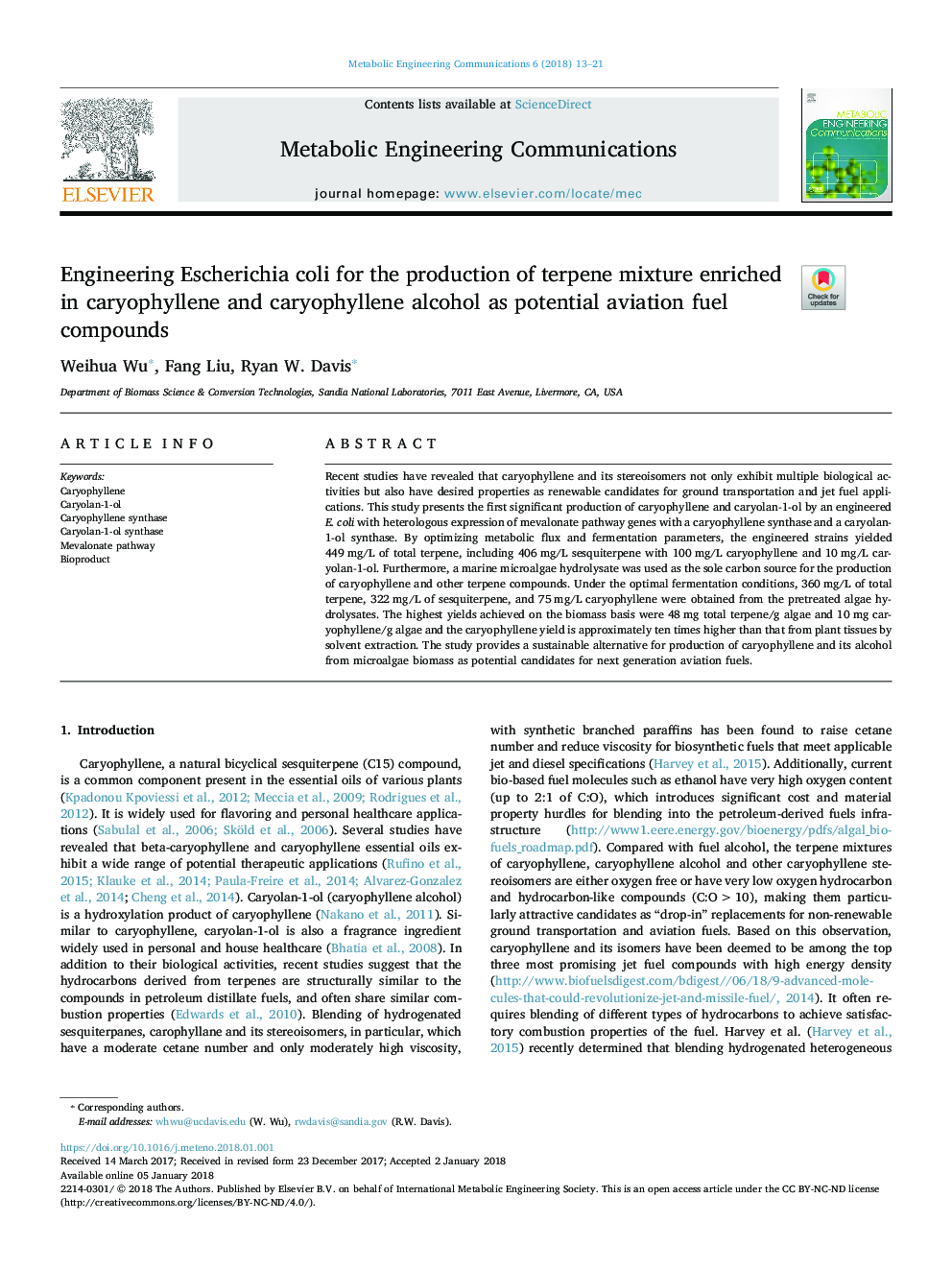| Article ID | Journal | Published Year | Pages | File Type |
|---|---|---|---|---|
| 6964991 | Metabolic Engineering Communications | 2018 | 9 Pages |
Abstract
Recent studies have revealed that caryophyllene and its stereoisomers not only exhibit multiple biological activities but also have desired properties as renewable candidates for ground transportation and jet fuel applications. This study presents the first significant production of caryophyllene and caryolan-1-ol by an engineered E. coli with heterologous expression of mevalonate pathway genes with a caryophyllene synthase and a caryolan-1-ol synthase. By optimizing metabolic flux and fermentation parameters, the engineered strains yielded 449Â mg/L of total terpene, including 406Â mg/L sesquiterpene with 100Â mg/L caryophyllene and 10Â mg/L caryolan-1-ol. Furthermore, a marine microalgae hydrolysate was used as the sole carbon source for the production of caryophyllene and other terpene compounds. Under the optimal fermentation conditions, 360Â mg/L of total terpene, 322Â mg/L of sesquiterpene, and 75Â mg/L caryophyllene were obtained from the pretreated algae hydrolysates. The highest yields achieved on the biomass basis were 48Â mg total terpene/g algae and 10Â mg caryophyllene/g algae and the caryophyllene yield is approximately ten times higher than that from plant tissues by solvent extraction. The study provides a sustainable alternative for production of caryophyllene and its alcohol from microalgae biomass as potential candidates for next generation aviation fuels.
Related Topics
Physical Sciences and Engineering
Chemical Engineering
Bioengineering
Authors
Weihua Wu, Fang Liu, Ryan W. Davis,
